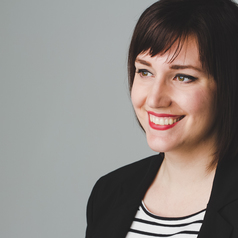Have you ever woken up in the morning (or afternoon) in a cloud of worry after having a few drinks the night before?
As this holiday season comes to an end — after weeks of Christmas festivities, holiday parties and New Year celebrations — many of you may be nursing some hangover anxiety, or “hangxiety,” after getting just a little too merry.
As a neuroscientist researching how food and drink affect brain function, let me explain how drinking alcohol can trigger hangxiety the next day.
From tequila to endorphins and dopamine
Alcoholic beverages — beer, wine or spirits — disrupt the delicate balance of chemicals in the brain, called neurotransmitters. Alcohol exerts a cocktail of effects on brain function that can be enjoyable at the time, but much less fun the next day.
The pleasurable effects of alcohol are due to the release of endorphins — natural opioid hormones in the brain.
Good feelings also come from alcohol increasing the release of the dopamine by activating the brain’s reward system — the mesolimbic pathway. Dopamine release reinforces behaviours — making it more likely for us to do whatever caused the dopamine surge again.
So, we quickly learn that the shot of tequila or glass of wine made us feel good, making us want more.
But alcohol affects more than just the rewarding chemicals in the brain. Alcohol alters levels of neurotransmitters that control brain activity and function. Brain imaging shows that alcohol decreases activity in the prefrontal cortex and temporal lobe — key centres for decision-making, self control and memory.
Feelings of anxiety, unease and stress
Alcohol increases activity of the brain’s main inhibitory chemical GABA (gamma-aminobutyric acid) by mimicking its effects at synapses — the connections between neurons.
GABA reduces a neuron’s activity, and alcohol exaggerates this effect. Increased GABA promotes feelings of relaxation and calmness, making us more sociable and less stressed.
After several more drinks, alcohol blocks the glutamate system. Glutamate is the main excitatory transmitter in the brain, and plays an important role in forming memories and emotions.
Balance between GABA and glutamate is vital for optimum brain functioning. Alcohol shifts this balance. Alcohol is called a central nervous system depressant because it both increases inhibitory GABA and decreases excitatory glutamate.
When your brain senses high levels of GABA and low levels of glutamate it quickly adapts to counteract this imbalance. Compensatory changes result in low levels of GABA and increased glutamate that cause feelings of anxiety, unease and stress, enduring into the next day.
Oh no … did I really do that?
After several alcoholic drinks, glutamate transmission slows down in the medial temporal lobe — the brain region where memories are formed.
Alcohol-induced amnesia, or “blackouts,” are caused by a rapid increase in blood alcohol levels, often due to binge drinking. A binge is defined as more than four or five drinks in two hours for women and men, respectively.
In the sober brain, memories are formed after information is transferred from short-term memory to long-term memory. This process is called memory consolidation. Memories for events can then be retrieved and remembered.
Alcohol interferes with the consolidation and retrieval of memories, leading to confusion and uncertainty the next day. These hazy memories of the night’s events (“Oh no … did I really do that?!”) can cause great anxiety.
Alcohol also dramatically disrupts sleep quality, reducing REM-phase sleep when dreams occur. REM sleep is critical for encoding long-term memories. So, a bad night’s sleep after drinking alcohol can cause memories to become fragmented.
Shy people do suffer more
Not everyone experiences hangxiety, but some may experience it more than others. A recent study found that the intensity of a hangxiety experience varies between people based on personality traits, while controlling for alcohol consumed and blood alcohol levels.
Individuals with more reported shyness traits experienced increased levels of anxiety following alcohol consumption than people who had lower baseline levels of shyness.
Can you avoid hangxiety?
The only guaranteed way to avoid hangover anxiety is to not drink alcohol.
You can, however, reduce the adverse effects of alcohol by drinking less. By spacing out drinks with glasses of water, you can avoid the rapid increase in blood alcohol that impairs memory and stay hydrated to lessen the headache the next day.



 FDA Fast-Track Drug Reviews Delayed Over Safety and Efficacy Concerns
FDA Fast-Track Drug Reviews Delayed Over Safety and Efficacy Concerns  Sanofi to Acquire Dynavax in $2.2 Billion Deal to Strengthen Vaccines Portfolio
Sanofi to Acquire Dynavax in $2.2 Billion Deal to Strengthen Vaccines Portfolio  RFK Jr. Overhauls Federal Autism Panel, Sparking Medical Community Backlash
RFK Jr. Overhauls Federal Autism Panel, Sparking Medical Community Backlash  Weight-Loss Drug Ads Take Over the Super Bowl as Pharma Embraces Direct-to-Consumer Marketing
Weight-Loss Drug Ads Take Over the Super Bowl as Pharma Embraces Direct-to-Consumer Marketing  Viking Therapeutics Sees Growing Strategic Interest in $150 Billion Weight-Loss Drug Market
Viking Therapeutics Sees Growing Strategic Interest in $150 Billion Weight-Loss Drug Market  Novo Nordisk Launches Once-Daily Wegovy Pill in U.S. at Competitive Pricing
Novo Nordisk Launches Once-Daily Wegovy Pill in U.S. at Competitive Pricing  Royalty Pharma Stock Rises After Acquiring Full Evrysdi Royalty Rights from PTC Therapeutics
Royalty Pharma Stock Rises After Acquiring Full Evrysdi Royalty Rights from PTC Therapeutics  Novo Nordisk and Eli Lilly Cut Obesity Drug Prices in China as Competition Intensifies
Novo Nordisk and Eli Lilly Cut Obesity Drug Prices in China as Competition Intensifies  China to Add Eli Lilly’s Mounjaro to National Health Insurance in 2025
China to Add Eli Lilly’s Mounjaro to National Health Insurance in 2025 































